-
Horse and His Boy, The
C.S. Lewis
eBook (Dreamscape Media, )None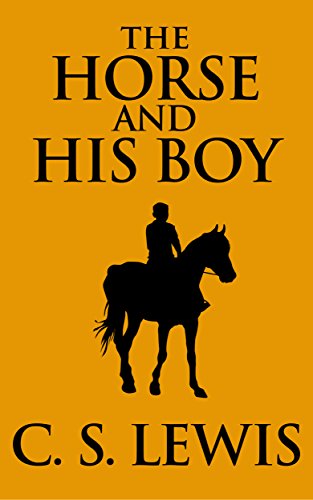 T
T
-
The Magician's Nephew
C. S. Lewis
eBookThe Magician's Nephew is a high fantasy children's novel by C. S. Lewis, published by Bodley Head in 1955. It is the sixth published of seven novels in The Chronicles of Narnia (1950–1956); it is volume one of the series in recent editions, which sequence the books according to Narnia history. Like the others, it was illustrated by Pauline Baynes whose work has been retained in many later editions. The Bodley Head was a new publisher for The Chronicles, a change from Geoffrey Bles.[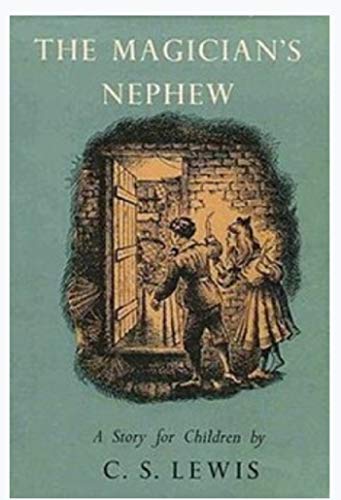 T
T
-
The Lion, the Witch, and the Wardrobe
C. S. Lewis
Mass Market Paperback (HarperCollins, Jan. 1, 1704)None T
T
-
The Pilgrim's Regress
C. S. Lewis
Paperback (Eerdmans, Oct. 22, 2014)The first book written by C. S. Lewis after his conversion to Christianity, The Pilgrim's Regress is, in a sense, a record of Lewis's own search for meaning and spiritual satisfaction, a search that eventually led him to Christianity.Here is the story of the pilgrim John and his odyssey to an enchanting island that creates in him an intense longing -- a mysterious, sweet desire. John's pursuit of this desire takes him through adventures with such people as Mr. Enlightenment, Mr. Mammon, Mother Kirk, and Mr. Sensible and through such cities as Thrill and Eschropolis -- and through the Valley of Humiliation.Though the dragons and giants here are different from those in Bunyan's Pilgrim's Progress, Lewis's allegory performs the same function of enabling the author to say with fantasy and simplicity what would otherwise have demanded a full-length philosophy of religion. In Lewis's skillful hands this fable becomes as effective a Christian apologia as Bunyan's.
-
God in the Dock
C. S. Lewis
language (, May 12, 2019)God in the Dock is a collection of previously unpublished essays and speeches from C. S. Lewis, collected from many sources after his death. Its title implies "God on Trial"[a] and the title is based on an analogy[1] made by Lewis suggesting that modern human beings, rather than seeing themselves as standing before God in judgement, prefer to place God on trial while acting as his judge.This book was originally published in the United Kingdom as Undeceptions: Essays on Theology and Ethics,[2] while a shorter book, published by Fontana in 1979 and entitled God in the Dock: Essays on Theology, does not include many of the essays in this larger collection.[3] The editor states that the collection is a "very mixed bag". They are divided by the editor into Part I - "clearly theological", Part II - "semi-theological", Part III - "basic theme is 'ethics', and Part IV - letter arranged in the chronological order in which they were published" (quoted from the preface to the book). Thus, the following appears to be a misunderstanding of the book as it is actually presented to the reader.The collection covers a wide range of topics but focuses primarily on Lewis' view of Christianity. The book is split into three sections, the first of which contains essays such as "Myth Became Fact", "The Grand Miracle", and "Is Theism Important?". These articles lay the groundwork for Lewis' apologetics, essentially establishing a starting point at which the true discrepancies between Christians and non-Christians become clea.The second section of God in the Dock builds on that starting point and presents a persuasive argument for Christianity. In articles including "Revival or Decay?" and "Modern Translations of the Bible", Lewis defends authentic Christianity and draws a distinct line between Truth and Religion.Lewis had already noted a distinct split between the religious and secular observance of Christmas. In Xmas and Christmas: A Lost Chapter from Herodotus,[4] Lewis relates as satire the observance of two simultaneous holidays in "Niatirb" (Britain backwards) from the supposed view of the Greek historian and traveller. One, "Exmas", is observed by a flurry of compulsory commercial activity and expensive indulgence in alcoholic beverages. The other, "Crissmas," is observed in Niatirb's temples. Lewis's narrator asks a priest "why they kept Crissmas on the same day as Exmas?" He receives the reply:"It is not lawful, O Stranger, for us to change the date of Crissmas, but would that Zeus would put it into the minds of the Niatirbians to keep Exmas at some other time or not to keep it at all. For Exmas and the Rush distract the minds even of the few from sacred things. And we indeed are glad that men should make merry at Crissmas; but in Exmas there is no merriment left." And when I asked him why they endured the Rush, he replied, "It is, O Stranger, a racket. . . "In the chapter "Evil and God," Lewis refers to "mellontolatry", or the worship of the future.[5] He considers this to be unproductive IF the future is simply where the world is going, that is, a random walk. He believes that the world can hardly congratulate itself for having "arrived" at a future that is simply a place it has got to, if that is all that it is - Lewis in fact argues that there is more purpose than that, but that some choose to worship that alone.Lewis also address those skeptical of the Resurrection of Jesus. Even if one interprets the crucifixion of Jesus as a strictly historical event, this doesn't preclude its subsequent mythologization. But neither does it negate its historicity. The claim of the Gospel writers is that Jesus' resurrection is a specific historical event.The heart of Christianity is a myth which is also a fact. The old myth of the Dying God, without ceasing to be myth, comes down from the heaven of legend and imagination to the earth of history.
-
Magician's Nephew
C. S. Lewis
Paperback (HarperCollins Children's Books, Oct. 1, 2009)Magicians Nephew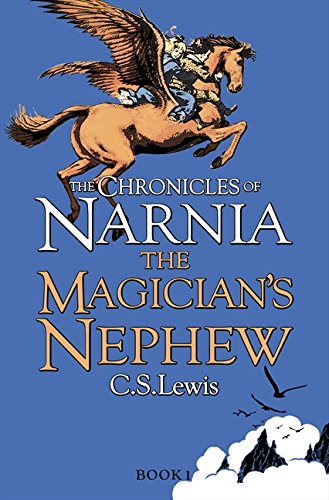 T
T
-
The Screwtape Letters
C. S. Lewis
eBookThe Screwtape Letters is a Christian apologetic novel by C. S. Lewis and dedicated to J. R. R. Tolkien. It is written in a satirical, epistolary style and while it is fictional in format, the plot and characters are used to address Christian theological issues, primarily those to do with temptation and resistance to it.First published in February 1942,[1] the story takes the form of a series of letters from a senior demon Screwtape to his nephew Wormwood, a Junior Tempter. The uncle's mentorship pertains to the nephew's responsibility in securing the damnation of a British man known only as "the Patient".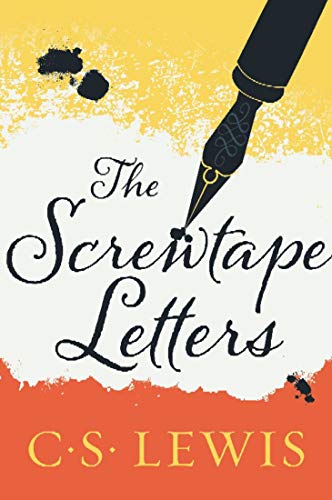
-
The Chronicles of Narnia, 60th Anniversary Edition
C. S. Lewis
Hardcover (HarperCollins, Oct. 26, 2010)In 1950, C. S. Lewis introduced the land of Narnia in The Lion, the Witch and the Wardrobe. Now, celebrate the sixtieth anniversary of the beginning of the beloved series with this luxurious presentation of C. S. Lewis's seven-book masterpiece. Beautifully bound and slipcased and printed on superior-quality paper gilded in elegant gold, this edition features a full-color map suitable for framing, a full-color timeline of Narnian history bound inside the book, and backmatter exploring Narnia through the eyes of its creator. A ribbon marker will help readers keep their place. This is the perfect indulgence for collectors and avid fans. W
W
-
The Lion, the Witch and the Wardrobe
C. S. Lewis
language (Green Light, Jan. 2, 2014)The Lion, the Witch and the Wardrobe is the second tale in The Chronicles of Narnia by C. S. Lewis. It is the most famous book of the series and takes four English children through the magical world of Narnia with talking animals and mythical beasts. Narnia has been put into a deep winter by the White Witch. C. S. Lewis wrote the story for his god-daughter Lucy Barfield and named one of the characters in the book after her. The series has been popular since its publication in the 1950’s, it has been translated into 47 languages, and has been made into many film, TV, radio, and stage adaptations.~Made Time’s All-Time 100 Novels ListExpertly formatted with a linked table of contents. Look for more of The Chronicles of Narnia from Green Light. Visit us at - GreenLighteBooks.tumblr.comTwitter - @GreenLightbooks and facebook.com/greenlightbooks
-
The Lion, the Witch and the Wardrobe
C. S. Lewis
(HarperCollins, Jan. 1, 1655)None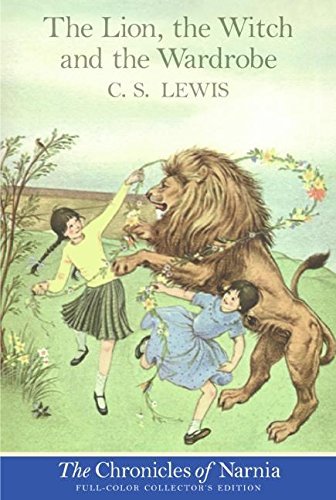
-
The Silver Chair
Lewis C. S.
language (, Aug. 24, 2019)King Caspian is now well on in years, and has a son and heir, Prince Rilian. Rilian, however, disappeared from Narnia under mysterious and sinister circumstances, and has been missing for some years. He must be found. W
W
-
Out Of The Silent Planet
C.S. Lewis
Paperback (Independently published, )None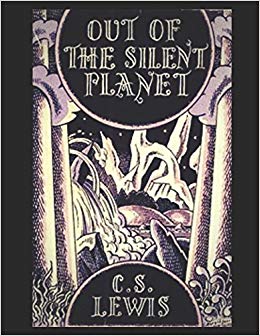 W
W